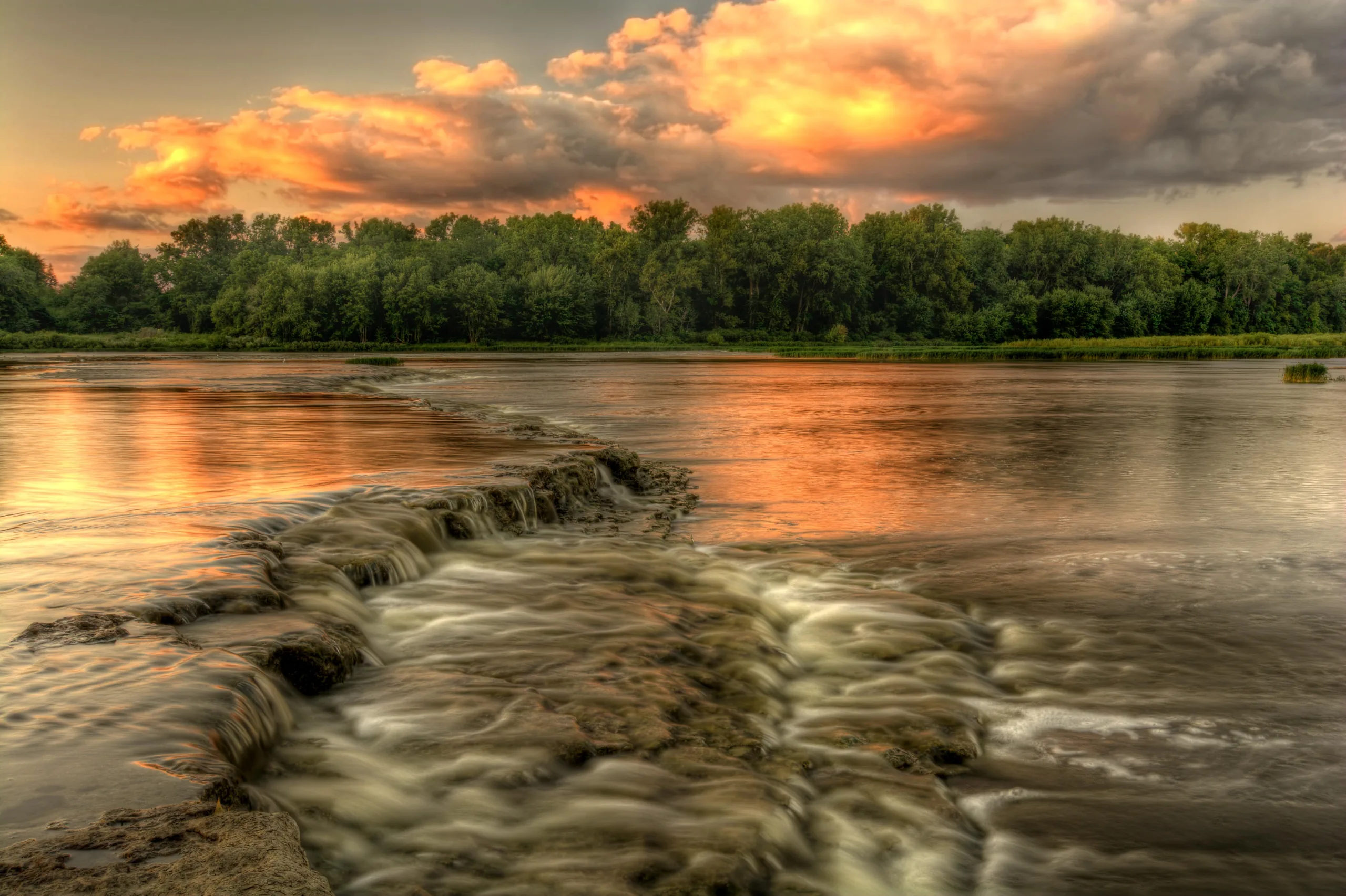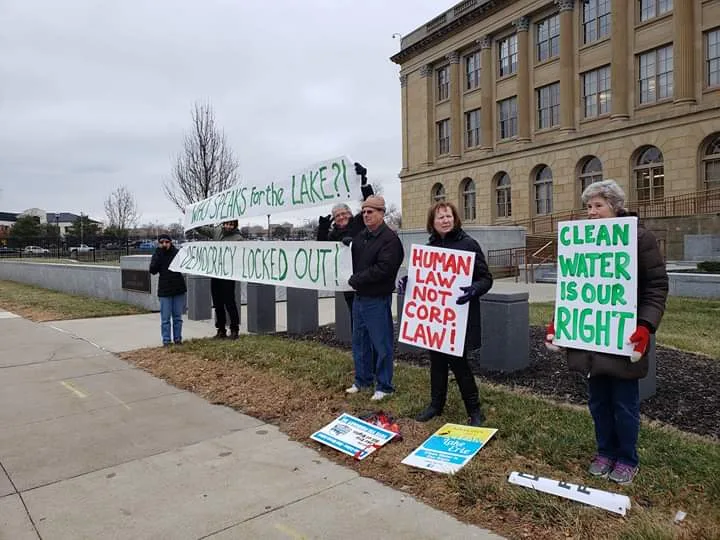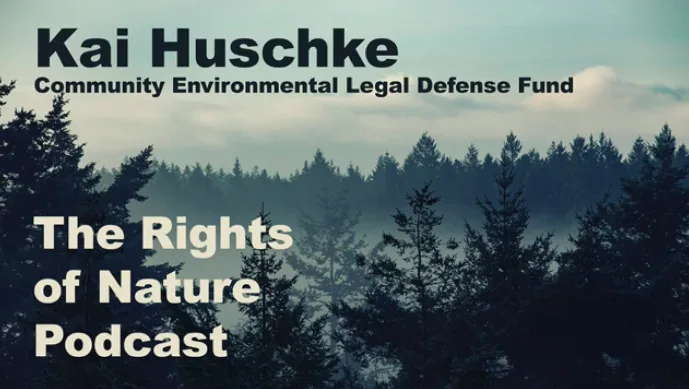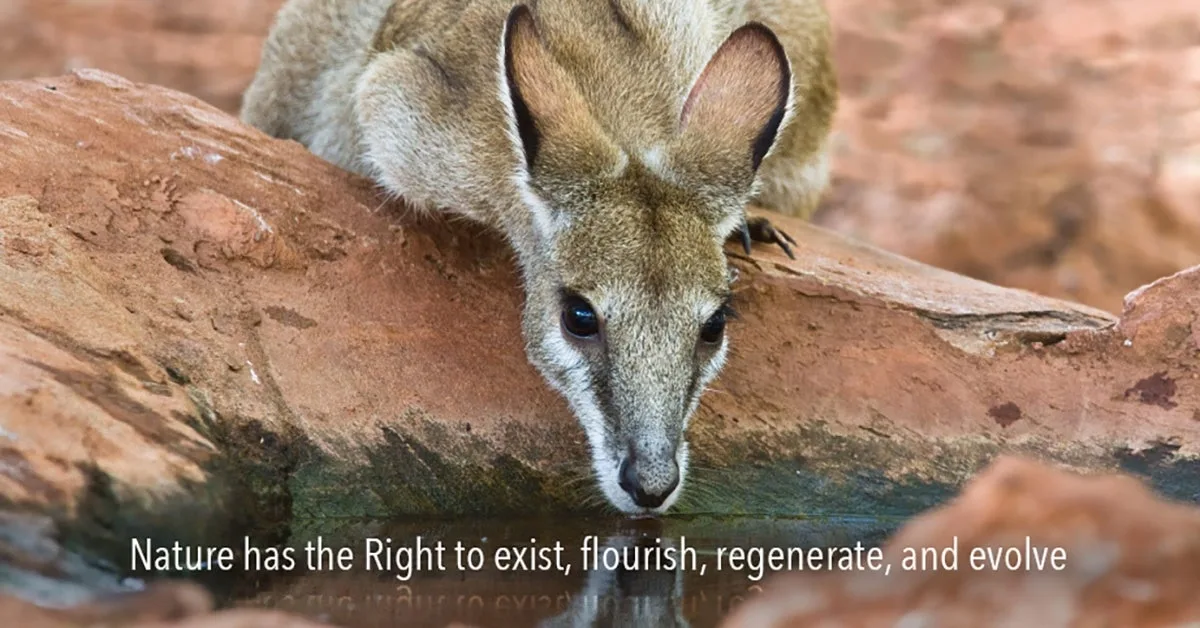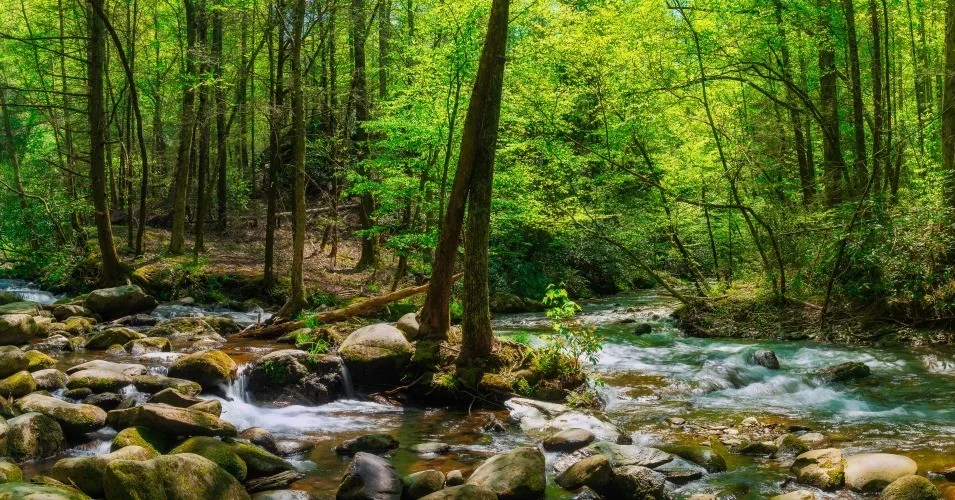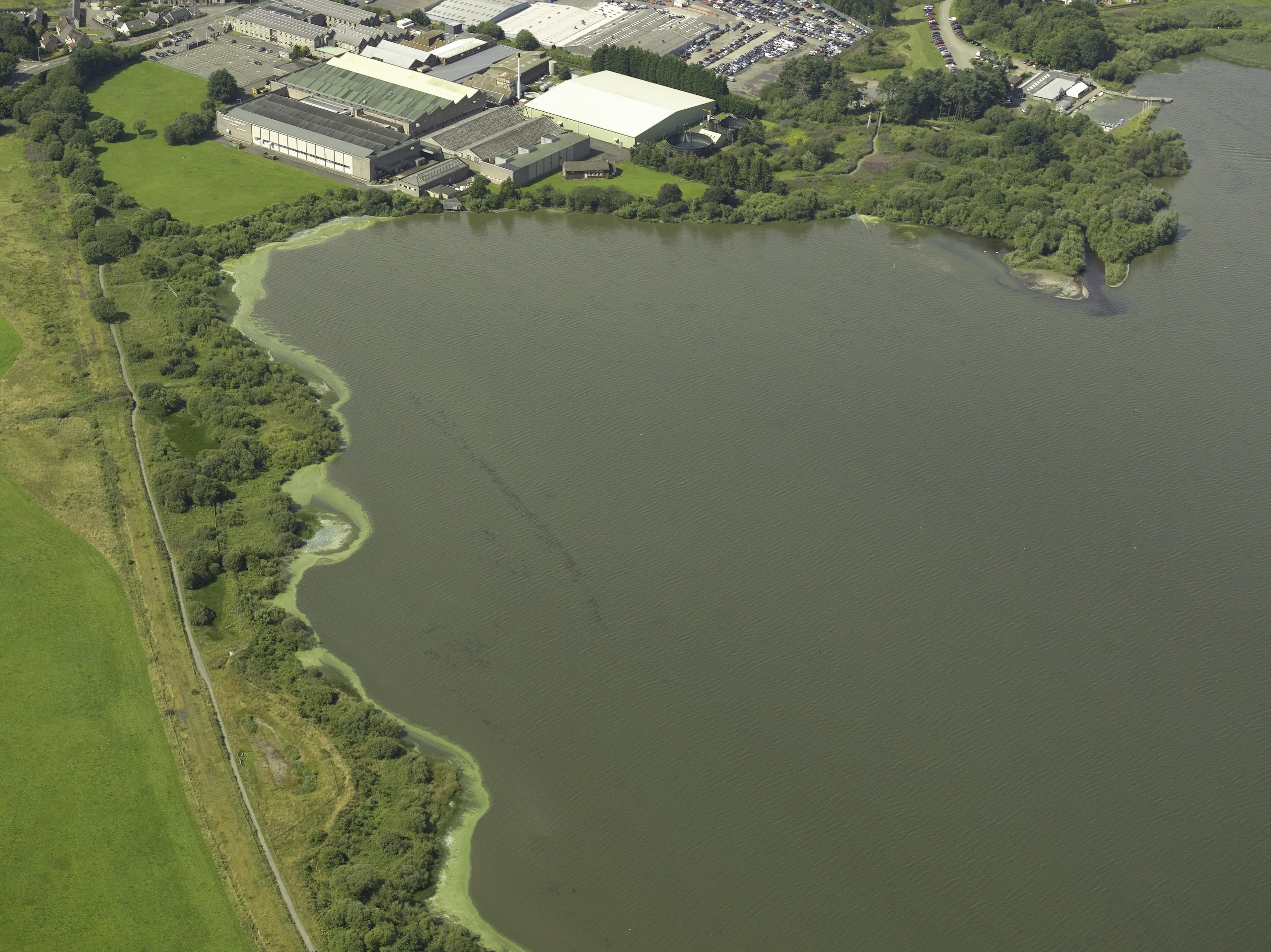FOR IMMEDIATE RELEASE
October 6, 2020
CONTACT:
Tish O’Dell
Community Environmental Legal Defense Fund
Ohio Community Organizer
CELDF.org
tish@celdf.org
440-552-6774
The State of Ohio has engaged in deliberate and evasive repression tactics against city and county ballot measures
Cincinnati, OH: Plaintiffs from seven Ohio counties, representing Rights of Nature and corporate control ballot measures, have filed an appeal to the Sixth Circuit in a federal civil rights case against the State of Ohio. Plaintiffs were petitioners for initiative campaigns that involved thousands of volunteer hours. Some successfully qualified multiple measures that were then blocked from the ballot for often arbitrary reasons by an election apparatus controlled by the Ohio Secretary of State and backed by Ohio’s courts.
These measures, from Youngstown, Toledo, Columbus, and Portage, Medina, Athens, and Meigs counties, sought to defend vital ecosystems and waterways, and all advanced structural changes to local governance. They would have outlawed practices such as hydraulic fracturing, fracked gas pipelines, frack waste injection wells, and infused community control over the harmful corporate practices. One proposal aimed to control local corporate campaign contributions.
The Community Environmental Legal Defense Fund is supporting the plaintiffs.
“The media allows sneaky forms of repression to go unnoticed when it focuses only on what is on the ballot. We need to examine how our ballots are being censored,” says Tish O’Dell, CELDF’s organizer who has worked with the plaintiffs’ groups. “These plaintiffs are not alone—Missouri, Massachusetts, Arizona, Oregon—constraints on the scope of elections is a national phenomenon.”
The lawsuit argues the tactics used to keep the initiatives off the ballot in Ohio directly violate residents’ constitutionally protected rights of speech, assembly, to petition the government for redress of grievances, to vote, of due process, and to local, community self-government. It argues a 2016 state law, passed at the height of the local ballot initiative efforts, violates constitutional protections by granting non-judicial bodies the power to interpret the content of proposals and veto them off the ballot, before voting takes place.
This is “a systematic violation of electoral free speech and freedom of association rights,” says CELDF attorney Terry Lodge.
The following are statements from plaintiffs and petitioners:
“It’s disappointing, but not surprising, that the court chooses to ignore the constitution and instead look to unjust case law in ruling against the peoples’ right to the initiative process. Allowing our board of election to scrutinize petitions before the people vote is a clear violation of the separation of powers. They are not a judicial branch of government. It is a slippery slope to allow the ideology of a few untrained individuals to stifle the voices of the people and their constitutional right to propose law. What special powers will they grant themselves next? ~Saraquoia Bryant, Athens County Bill of Rights Committee
“Weeks, months, and years of researching facts, giving talks, organizing community water testing, pouring over county documents, discussing county charters with community members, only to have our citizen initiatives trashed by public officials supposed to serve the public have fired me up to dismantle this corrupt system and rebuild a real democracy.” ~Gwen B. Fischer, Portage County Community Rights Group
“Ours is one more collective struggle for voting rights to protect ourselves and future generations from chemical and fossil energy pollution. Our small effort is of planetary importance.” ~Jerry Dolcini, Sustainable Medina County
“Our all-volunteer group, Columbus Community Bill of Rights, has been trying to give a voice to the voters of Columbus to proactively protect their water and environment from the toxic, radioactive harms of fracking waste since 2014.” ~Bill Lyons, Columbus Community Bill of Rights
“Groups across the state filed complaints with the courts, assuming that the judicial branch would recognize the injustice of being denied ballot access. The results were that some communities were given ballot access and others were not, even during the same election cycle. This federal lawsuit was filed on behalf of communities who experienced voter suppression and unequal access to the ballot under the law. We wonder how people can find any justice in this fixed system where corporatists are allowed to write laws that ‘regulate’ themselves and where judges then use illegitimate and unconstitutional laws to silence the voices of the people. Fortunately, we the people understand that together we will persist with the intention that we don’t lose until we quit.” ~Susan Beiersdorfer, FrackFree Mahoning County
“The question today is: how interested are we in continuing to have a republic that actually allows for a share of constituent rule when needed?” ~Greg Pace, Columbus Community Bill of Rights
“In the case of the Medina County Charter initiative, our elected officials, at the behest of the oil and gas industry, have trampled our constitutional rights for far too long. I think we need to continue to take up the cause of self-governance because the elected officials are not responsive to the people. We will not give up! We can’t live this way and why should we? They will continue to steal our lives if we let them.” ~Kathie Jones, Sustainable Medina County
“It is truly disheartening, and frankly un-American, when people volunteer for hours and hours over months speaking to their neighbors on an issue that affects us all, getting thousands of signatures, succeed to meet all the requirements for placing an issue on the ballot, and then get denied for dubious reasons. In a moment. The spirit of our country, the engagement of the public, the trust in our public servants is all in question on this issue before the court.” ~Mary Emhoff, Sustainable Medina County
For more context read the 2019 CELDF report “In Plain Sight,” on repression tactics in Ohio: https://celdf.org/in-plain-
About CELDF — Community Environmental Legal Defense Fund
The Community Environmental Legal Defense Fund (CELDF) is building a movement for Community Rights and the Rights of Nature to advance democratic, economic, social, and environmental rights – building upward from the grassroots to the state, federal, and international level.
###
FOR IMMEDIATE RELEASE
October 6, 2020
CONTACT:
Tish O’Dell
Community Environmental Legal Defense Fund
Ohio Community Organizer
CELDF.org
tish@celdf.org
440-552-6774
The State of Ohio has engaged in deliberate and evasive repression tactics against city and county ballot measures
Cincinnati, OH: Plaintiffs from seven Ohio counties, representing Rights of Nature and corporate control ballot measures, have filed an appeal to the Sixth Circuit in a federal civil rights case against the State of Ohio. Plaintiffs were petitioners for initiative campaigns that involved thousands of volunteer hours. Some successfully qualified multiple measures that were then blocked from the ballot for often arbitrary reasons by an election apparatus controlled by the Ohio Secretary of State and backed by Ohio’s courts.
These measures, from Youngstown, Toledo, Columbus, and Portage, Medina, Athens, and Meigs counties, sought to defend vital ecosystems and waterways, and all advanced structural changes to local governance. They would have outlawed practices such as hydraulic fracturing, fracked gas pipelines, frack waste injection wells, and infused community control over the harmful corporate practices. One proposal aimed to control local corporate campaign contributions.
The Community Environmental Legal Defense Fund is supporting the plaintiffs.
“The media allows sneaky forms of repression to go unnoticed when it focuses only on what is on the ballot. We need to examine how our ballots are being censored,” says Tish O’Dell, CELDF’s organizer who has worked with the plaintiffs’ groups. “These plaintiffs are not alone—Missouri, Massachusetts, Arizona, Oregon—constraints on the scope of elections is a national phenomenon.”
The lawsuit argues the tactics used to keep the initiatives off the ballot in Ohio directly violate residents’ constitutionally protected rights of speech, assembly, to petition the government for redress of grievances, to vote, of due process, and to local, community self-government. It argues a 2016 state law, passed at the height of the local ballot initiative efforts, violates constitutional protections by granting non-judicial bodies the power to interpret the content of proposals and veto them off the ballot, before voting takes place.
This is “a systematic violation of electoral free speech and freedom of association rights,” says CELDF attorney Terry Lodge.
The following are statements from plaintiffs and petitioners:
“It’s disappointing, but not surprising, that the court chooses to ignore the constitution and instead look to unjust case law in ruling against the peoples’ right to the initiative process. Allowing our board of election to scrutinize petitions before the people vote is a clear violation of the separation of powers. They are not a judicial branch of government. It is a slippery slope to allow the ideology of a few untrained individuals to stifle the voices of the people and their constitutional right to propose law. What special powers will they grant themselves next? ~Saraquoia Bryant, Athens County Bill of Rights Committee
“Weeks, months, and years of researching facts, giving talks, organizing community water testing, pouring over county documents, discussing county charters with community members, only to have our citizen initiatives trashed by public officials supposed to serve the public have fired me up to dismantle this corrupt system and rebuild a real democracy.” ~Gwen B. Fischer, Portage County Community Rights Group
“Ours is one more collective struggle for voting rights to protect ourselves and future generations from chemical and fossil energy pollution. Our small effort is of planetary importance.” ~Jerry Dolcini, Sustainable Medina County
“Our all-volunteer group, Columbus Community Bill of Rights, has been trying to give a voice to the voters of Columbus to proactively protect their water and environment from the toxic, radioactive harms of fracking waste since 2014.” ~Bill Lyons, Columbus Community Bill of Rights
“Groups across the state filed complaints with the courts, assuming that the judicial branch would recognize the injustice of being denied ballot access. The results were that some communities were given ballot access and others were not, even during the same election cycle. This federal lawsuit was filed on behalf of communities who experienced voter suppression and unequal access to the ballot under the law. We wonder how people can find any justice in this fixed system where corporatists are allowed to write laws that ‘regulate’ themselves and where judges then use illegitimate and unconstitutional laws to silence the voices of the people. Fortunately, we the people understand that together we will persist with the intention that we don’t lose until we quit.” ~Susan Beiersdorfer, FrackFree Mahoning County
“The question today is: how interested are we in continuing to have a republic that actually allows for a share of constituent rule when needed?” ~Greg Pace, Columbus Community Bill of Rights
“In the case of the Medina County Charter initiative, our elected officials, at the behest of the oil and gas industry, have trampled our constitutional rights for far too long. I think we need to continue to take up the cause of self-governance because the elected officials are not responsive to the people. We will not give up! We can’t live this way and why should we? They will continue to steal our lives if we let them.” ~Kathie Jones, Sustainable Medina County
“It is truly disheartening, and frankly un-American, when people volunteer for hours and hours over months speaking to their neighbors on an issue that affects us all, getting thousands of signatures, succeed to meet all the requirements for placing an issue on the ballot, and then get denied for dubious reasons. In a moment. The spirit of our country, the engagement of the public, the trust in our public servants is all in question on this issue before the court.” ~Mary Emhoff, Sustainable Medina County
For more context read the 2019 CELDF report “In Plain Sight,” on repression tactics in Ohio: https://celdf.org/in-plain-
About CELDF — Community Environmental Legal Defense Fund
The Community Environmental Legal Defense Fund (CELDF) is building a movement for Community Rights and the Rights of Nature to advance democratic, economic, social, and environmental rights – building upward from the grassroots to the state, federal, and international level.
###
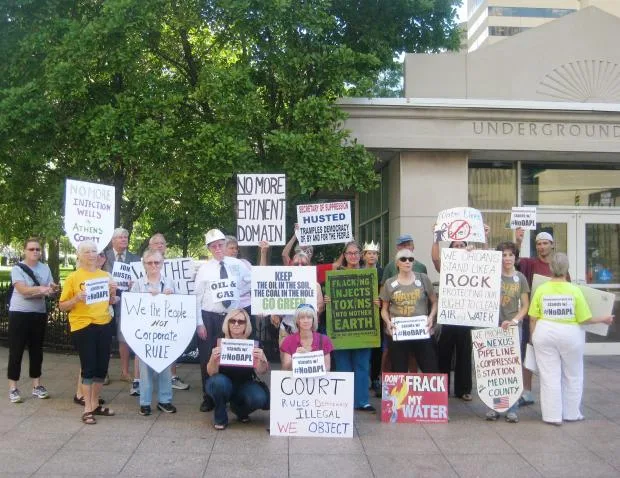
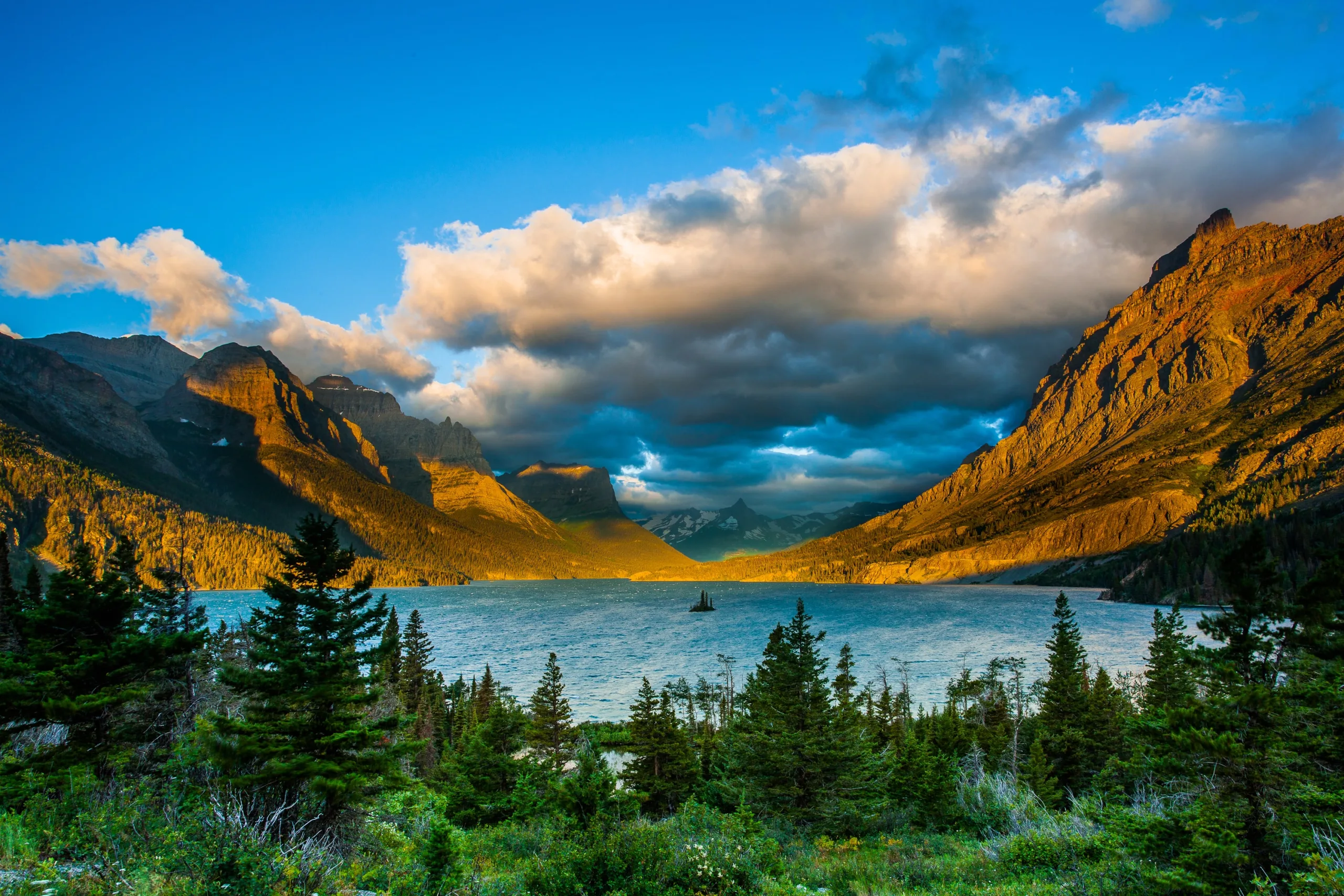

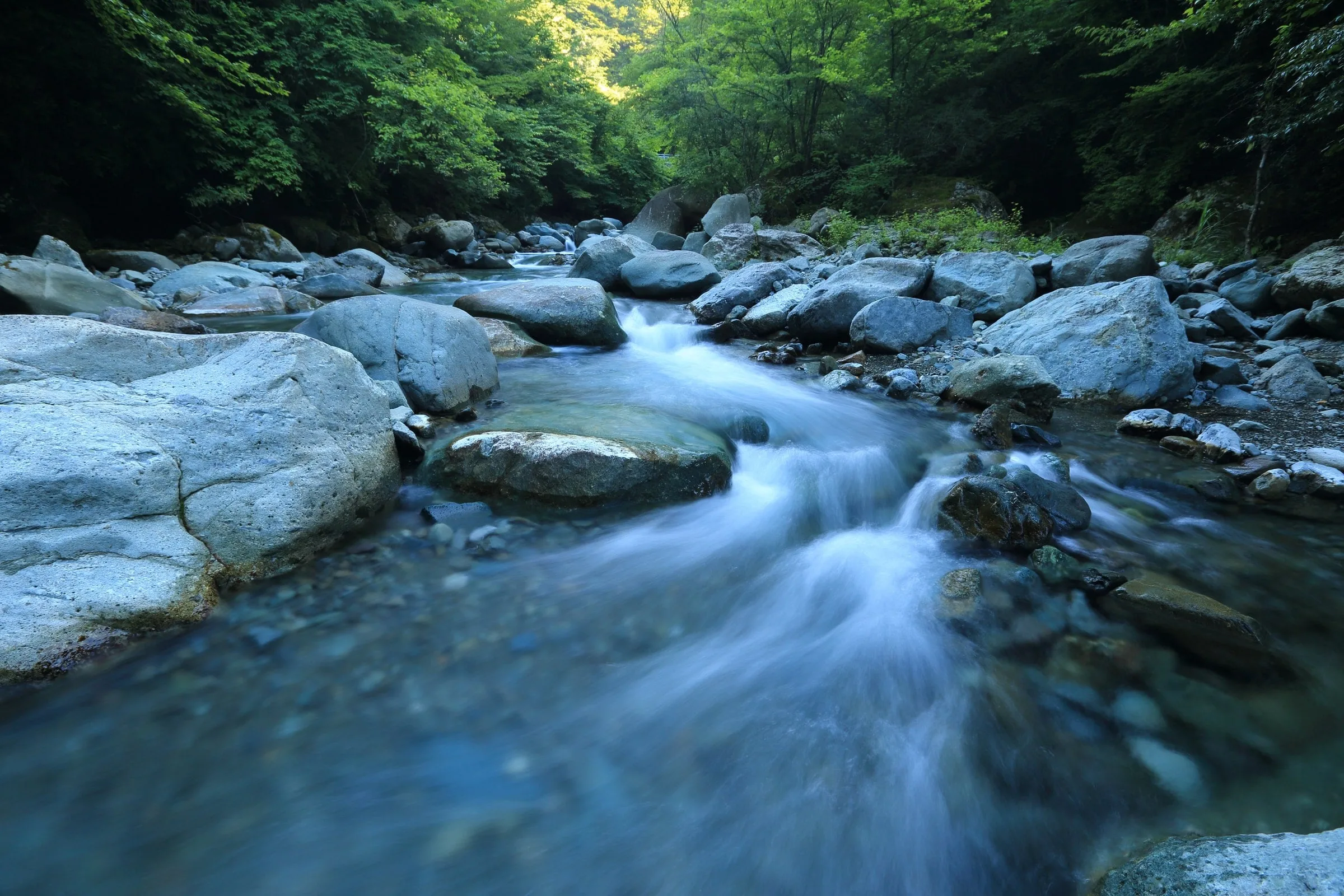
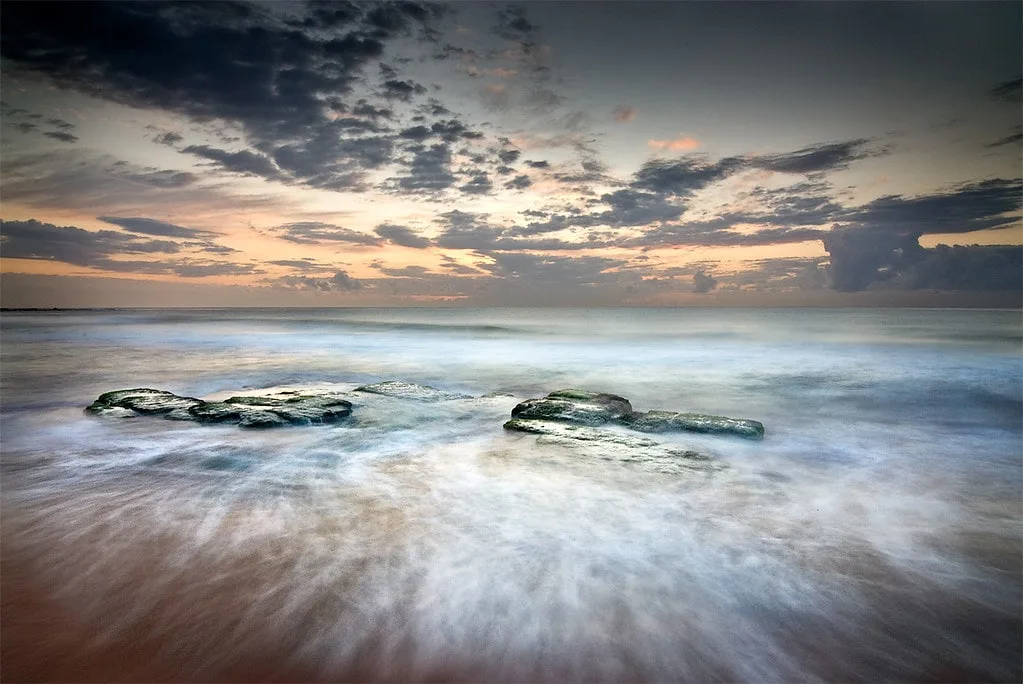


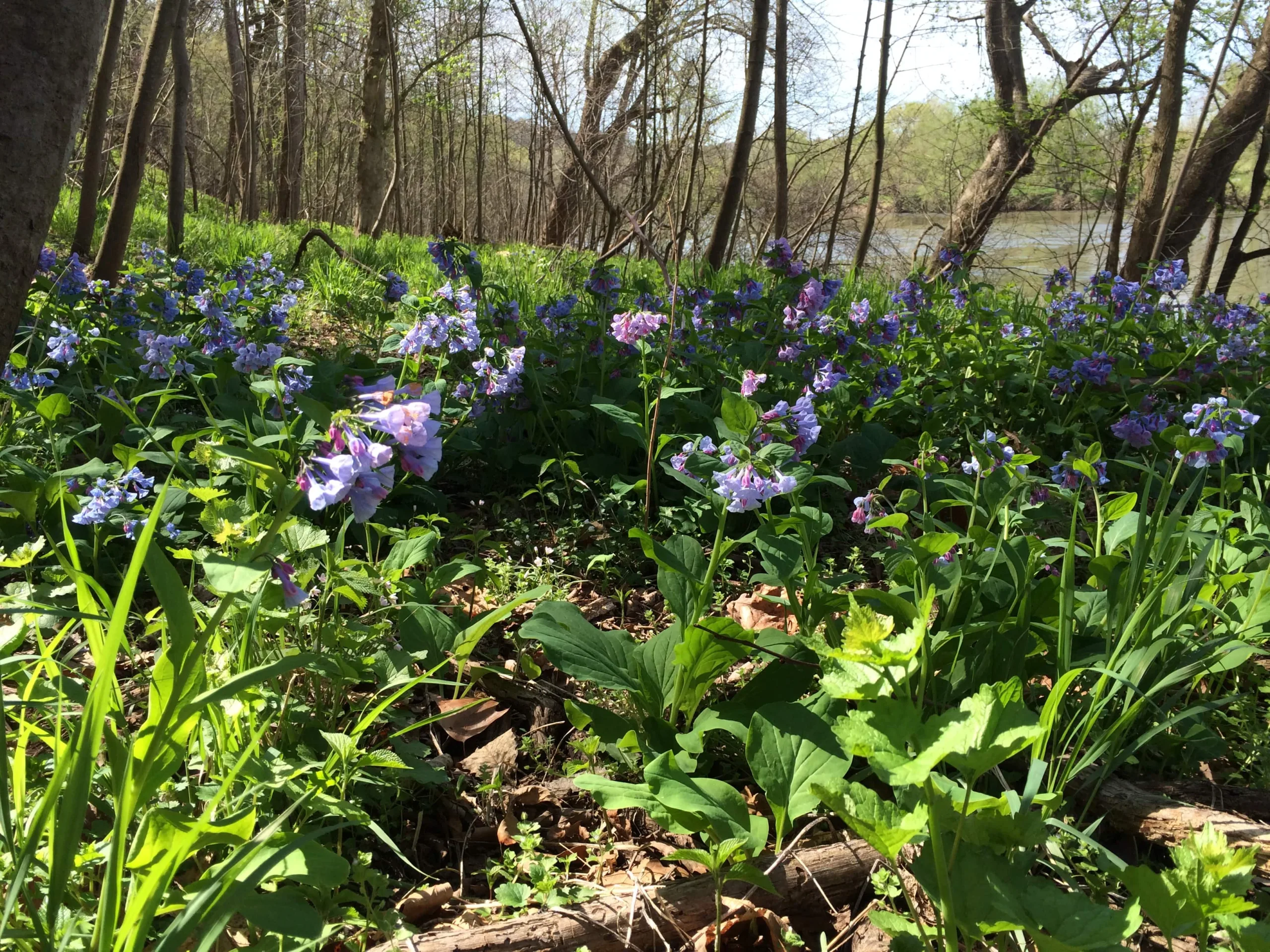
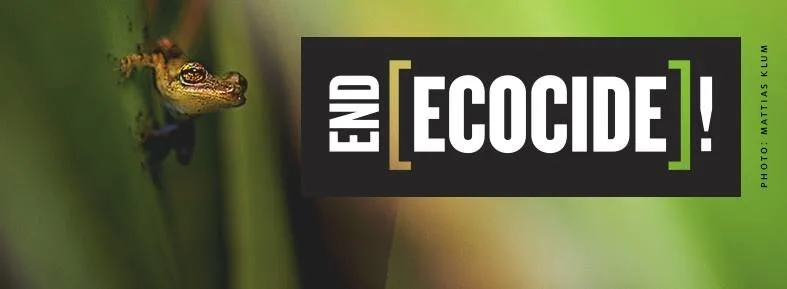
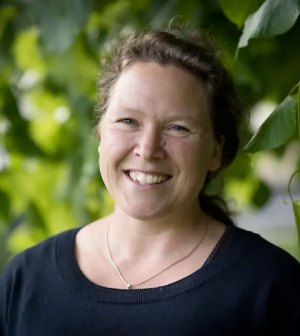 Pella Thiel is a Biologist, permaculturist and small-scale farmer. Co-founder of Transition Sweden, chairperson of End Ecocide Sweden, coordinator of Rights of Nature Sweden. This piece has been re-posted with the author’s permission.
Pella Thiel is a Biologist, permaculturist and small-scale farmer. Co-founder of Transition Sweden, chairperson of End Ecocide Sweden, coordinator of Rights of Nature Sweden. This piece has been re-posted with the author’s permission.